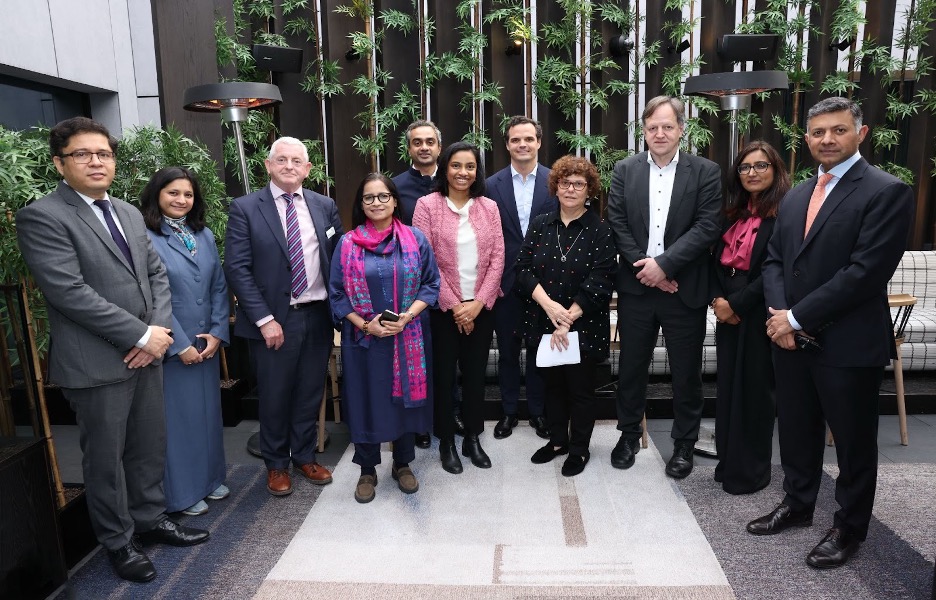Celebrating Women in Science Dr. Zeinab Nezami: Research Fellow, University of Leeds
30 Apr, 2025

This week we focus on Dr. Zeinab Nezami, Research Fellow, University of Leeds, Department of Computing who shares her path into science, her ground-breaking work in wireless communications, how her interest in science was sparked at an early age and how her research in AI-driven communication technologies encourages out of the box thinking.
Your Journey into Science
Can you tell me a bit about what sparked your interest in science? Was there a particular moment or experience that set you on this path?
My interest in science was sparked at an early age by my curiosity about how things work. I was always fascinated by uncovering the logic behind every day phenomena. A defining moment for me was watching a sci-fi movie that depicted people entering computer networks—it sparked my imagination about the possibilities of digital communication and connectivity. That curiosity led me to explore wireless communication, networks, and later, research in AI, advanced communication technologies, and distributed systems.
What was it like when you were first starting out? Did you always know this was the career you wanted to pursue, or did your journey take some unexpected turns?
Starting out in science and engineering was both exciting and challenging. I had a passion for technology, but the path wasn’t always straightforward. At times, I questioned whether I was on the right track, especially when faced with complex problems or moments of self-doubt. However, every challenge reinforced my determination, and I learned to embrace unexpected opportunities that shaped my career in ways I hadn’t initially planned. Looking back, those twists and turns helped me grow, and I wouldn’t change a thing.
What excites you the most about the work you do today?
What excites me the most is the ability to push the boundaries of innovation and contribute to shaping the future of communication technologies. Knowing that my work could have a real-world impact—whether in enhancing connectivity, enabling smart cities, or advancing AI-driven networks—keeps me motivated. The dynamic nature of this field means there’s always something new to discover, and I find that incredibly inspiring.
Challenges & Overcoming Barriers
Along the way, have you faced any challenges or obstacles that made you question your place in this field? How did you navigate them?
Yes, there have been moments when I questioned my place in the field, especially when I faced unexpected challenges like being one of the few women in the room. There were times when I doubted whether I would be able to meet the expectations or whether I truly belonged in such a competitive and male-dominated field. To navigate these challenges, I focused on building my skills and staying dedicated to my passion for science. By proving to myself that I had the knowledge and drive to succeed, I was able to push through self-doubt and grow stronger as a researcher and a professional.
Have you ever felt like you had to prove yourself in ways that your male colleagues didn’t? How did that shape your experiences?
Yes, there were moments where I felt like I had to prove myself more than my male colleagues. At times, I had to assert my voice more strongly, especially in situations where my ideas were initially overlooked or underappreciated. This experience made me more aware of the importance of self-advocacy and reinforced the need to be confident in presenting my ideas and work. Over time, I realized that it wasn’t about competing with others, but about being true to myself and owning my contributions to the field.
Some people talk about imposter syndrome in science—have you ever felt that way? How do you push through moments of self-doubt?
Imposter syndrome is something I have definitely struggled with, especially when faced with new challenges or high expectations. There were moments when I questioned whether I was good enough or if I truly belonged in the field. To push through those moments, I remind myself that everyone, at some point, experiences self-doubt. I focus on my accomplishments, no matter how small, and reflect on the hard work and persistence that got me where I am. I also remind myself that growth comes from facing challenges head-on, and that it’s okay to feel uncertain as long as I keep pushing forward.
Looking back, what kind of support do you wish you had earlier in your career?
Looking back, I wish I had more structured mentorship earlier in my career. While I had supportive colleagues, having someone more experienced to guide me through both technical and professional challenges would have been invaluable. A mentor could have helped me navigate difficult situations more effectively, avoid common pitfalls, and steer me in the right direction, saving me time and energy. They could have also provided insights on how to prioritize key opportunities and build confidence in areas where I lacked experience. I believe that with the right guidance, I could have accelerated my growth and avoided some unnecessary setbacks.
Achievements & Impact
Thinking about your career so far, is there a project or achievement that you’re particularly proud of? Why does it stand out to you?
One project that I’m particularly proud of and currently working on is my research in AI-driven communication technologies. It involves developing innovative AI frameworks to address efficiency, scalability, and trust in AI driven telecom systems. What stands out to me about this project is not just the technical challenge, but the way it encourages me to think outside the box and apply interdisciplinary knowledge. Moreover, this project is part of a large collaboration with professionals in the UK, which has given me an incredible opportunity to learn from experts, collaborate, and expand my professional network. Being part of this collaborative effort has opened up many doors for growth, both professionally and personally.
How has your work contributed to making a difference—whether for society, your field, or even for other women coming up behind you?
Through my work, I’ve focused on developing distributed systems where each component plays a crucial role in shaping the final solution. This approach not only enhances efficiency and scalability but also contributes to creating more decentralized, equitable systems. I believe in designing technologies that are accessible and beneficial, especially for underserved communities. Beyond the technical side, I actively mentor and support my female junior colleagues—whether PhD students or early-career professionals—helping them navigate the challenges of the field. By sharing my experiences and showing that success in this male-dominated industry is attainable, I hope to inspire them to push forward and believe in their potential. Their growth and success are important to me, and I take great pride in knowing that my own achievements can serve as a source of encouragement for them to pursue their ambitions in science and technology.
Have there been moments when you realised you were paving the way for others? How did that feel?
There have definitely been moments when I realized that my work was not only advancing the field but also helping to open doors for others, particularly women in technology. One particularly meaningful experience was when a female colleague, who had been a classmate of mine, shared that seeing my hard work come to fruition inspired her to keep pushing forward, especially during challenging times. She has since pursued an incredible career path in Canada. Knowing that my journey has had that kind of impact on others is incredibly empowering. It reinforces the idea that by simply being present and successful in spaces where women are underrepresented, I am contributing to changing the narrative and encouraging others to pursue their passion without hesitation.
Inspiring the Next Generation
If you could go back and give advice to your younger self, just starting out in science, what would you say?
If I could go back, I would remind myself to be patient and trust the process. Early in my career, I was eager to achieve results quickly, but I’ve learned that the journey in science is often more about persistence than speed. I’d also tell myself not to fear setbacks—they are not failures, but rather opportunities. Every time a setback occurred, something valuable was waiting around that corner to be learned, whether it was a new perspective or a deeper understanding of the problem. Additionally, I would encourage myself to seek mentorship and collaborate with others more proactively. The value of learning from those who have been through similar experiences is immeasurable.
What would you say to young girls who love science but don’t always feel like they belong in this space?
To young girls who love science, I would tell them to never let anyone make them feel like they don’t belong. Science, at its core, is about curiosity and problem-solving, and those qualities are not limited to any gender. The field needs diverse perspectives, and your unique voice is exactly what is needed to bring fresh insights. Don’t be discouraged by challenges or stereotypes—your passion and persistence will always be your biggest assets. Keep pushing forward and seek out supportive networks that believe in your potential.
From your perspective, what still needs to change to make science more welcoming and inclusive for women?
There are a few key things that need to change to make science more welcoming and inclusive for women. First, we need more visible female role models across all scientific disciplines. When women can see others who have succeeded, it encourages them to believe that they can too. Second, institutions need to create more inclusive environments that support women at all stages of their careers, especially in leadership roles. This includes offering mentorship, addressing unconscious bias, and ensuring work-life balance through flexible policies.
In our current project, I’m proud to say that the number of women in leadership roles is nearly equal to men, which is incredibly inspiring for me. This balance not only reflects progress in diversity but also demonstrates that women are capable of leading and shaping impactful research. Seeing this dynamic in action motivates me to continue advocating for gender equity in science.
What does International Women’s Day mean to you, especially as a woman in science?
International Women’s Day is a powerful reminder of both the progress we’ve made and the work still to be done. As a woman in science, it is a day to celebrate our contributions, acknowledge the challenges we’ve overcome, and honor the women who have paved the way before us. It’s also an opportunity to reflect on how we can continue to uplift one another and ensure that future generations of women in science feel supported, recognized, and empowered to follow their passions.




